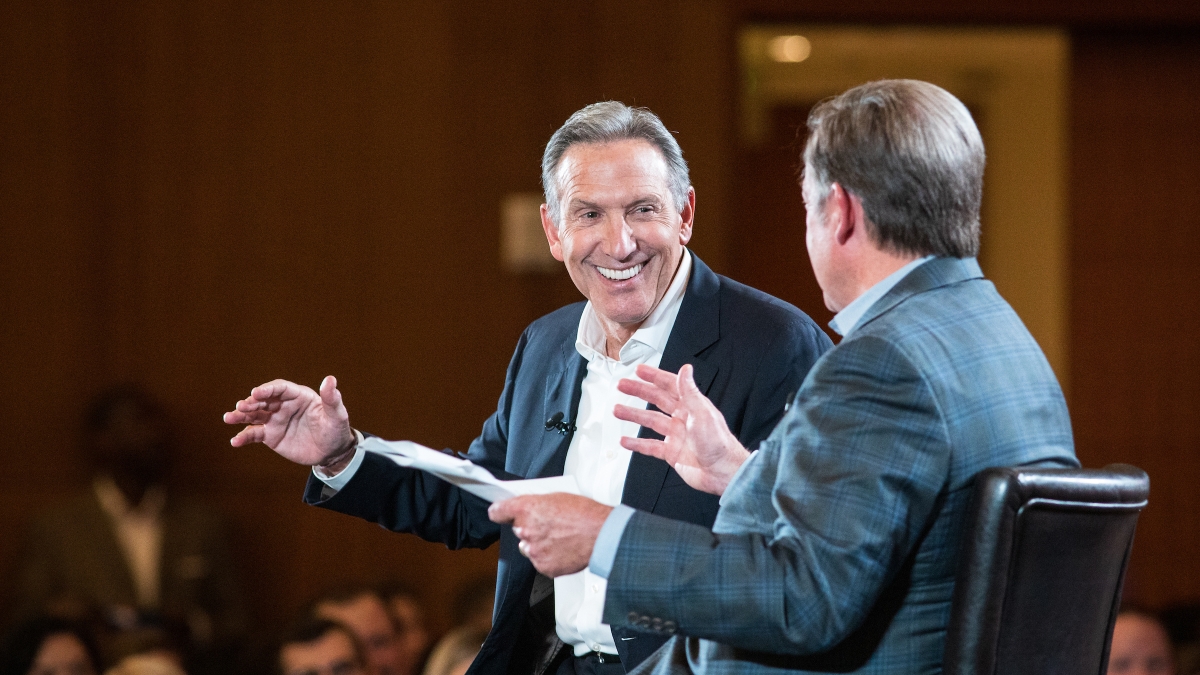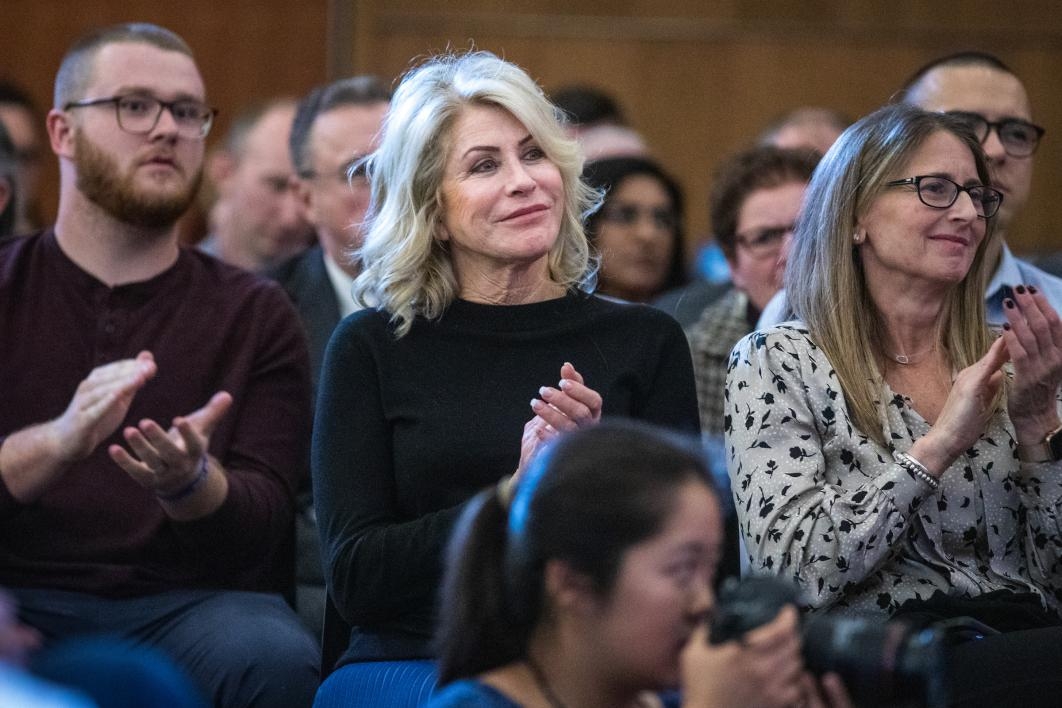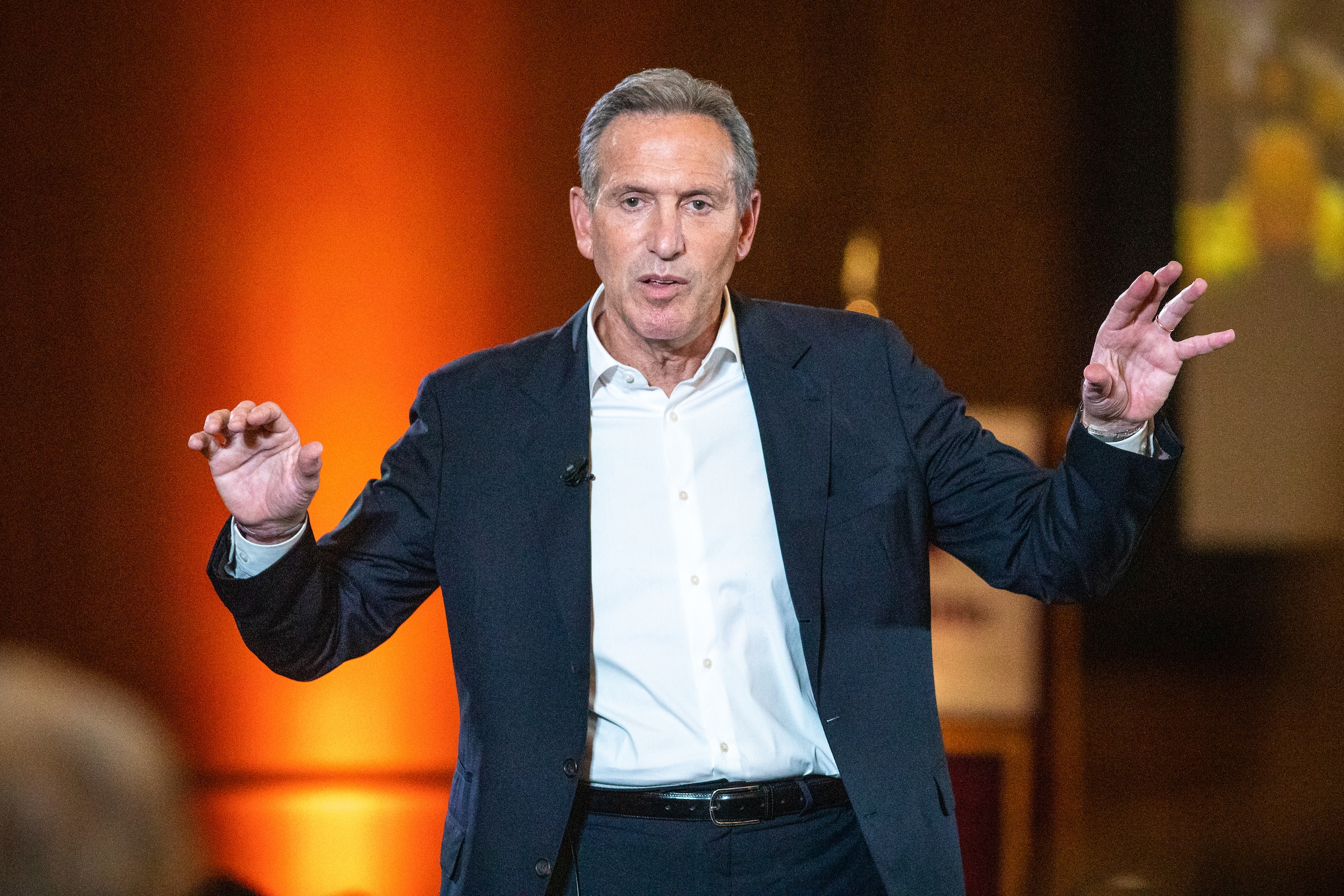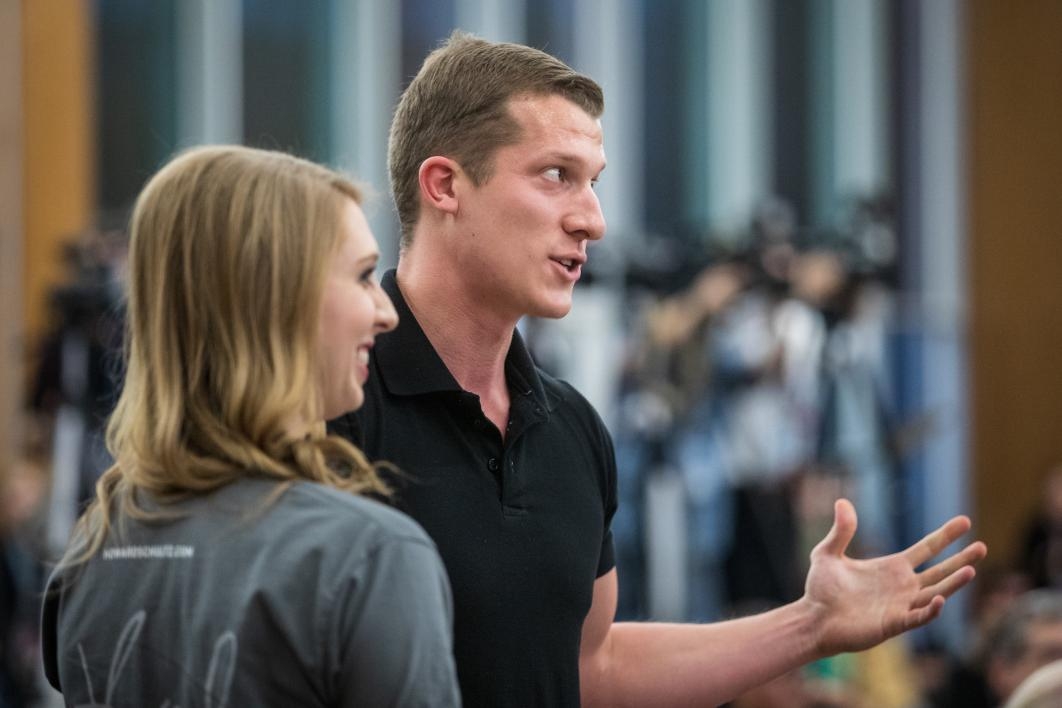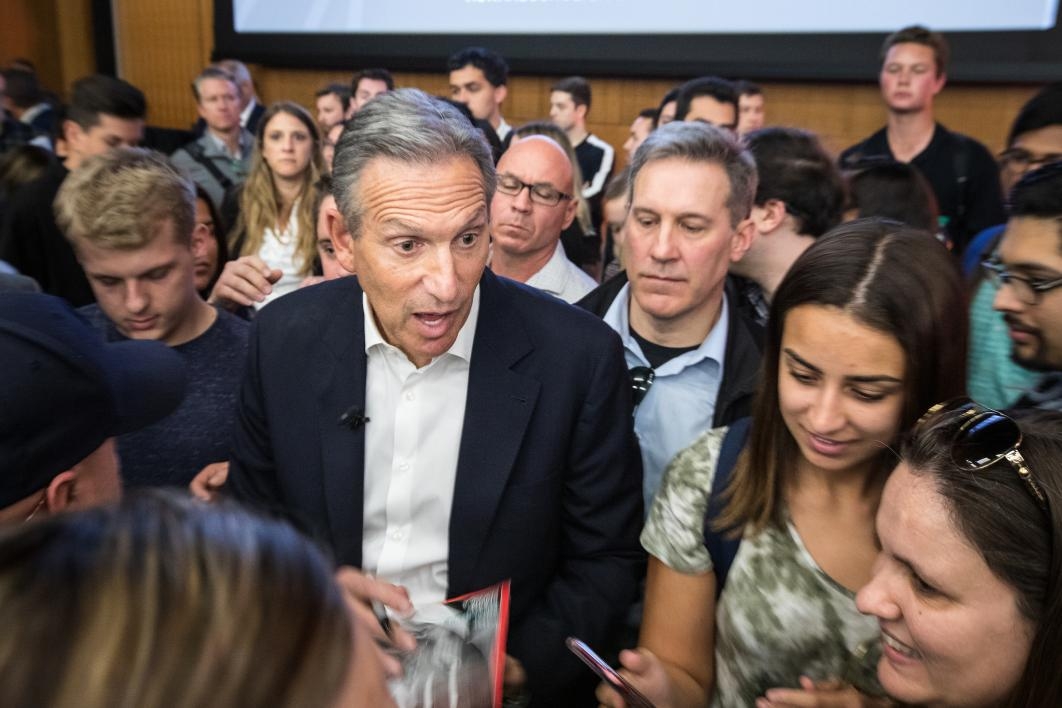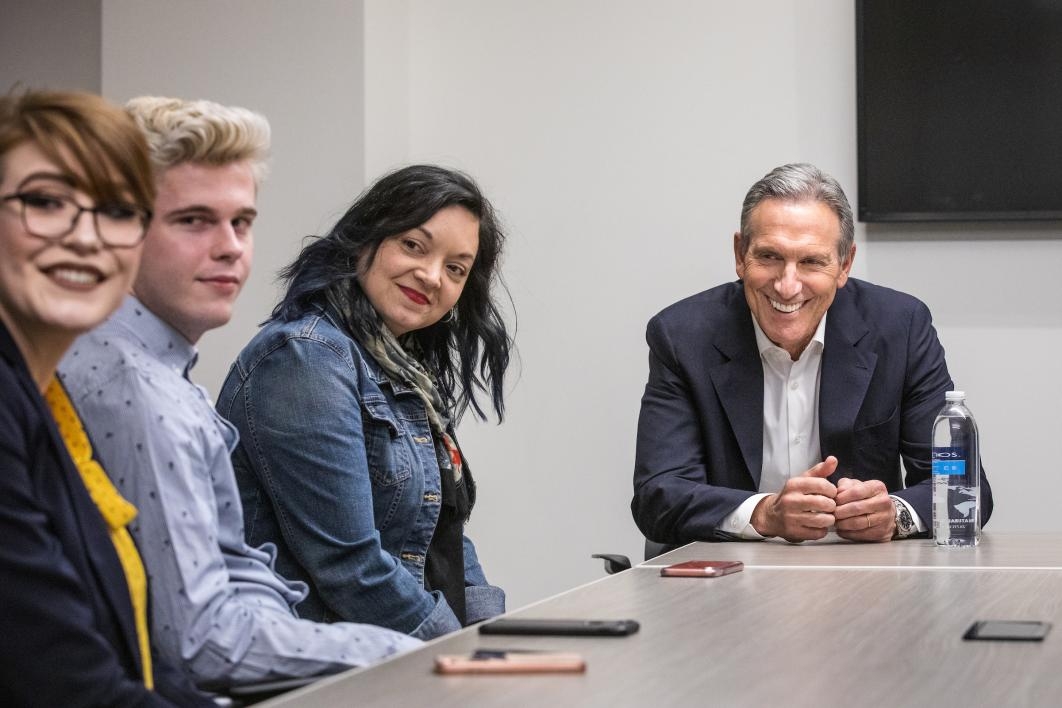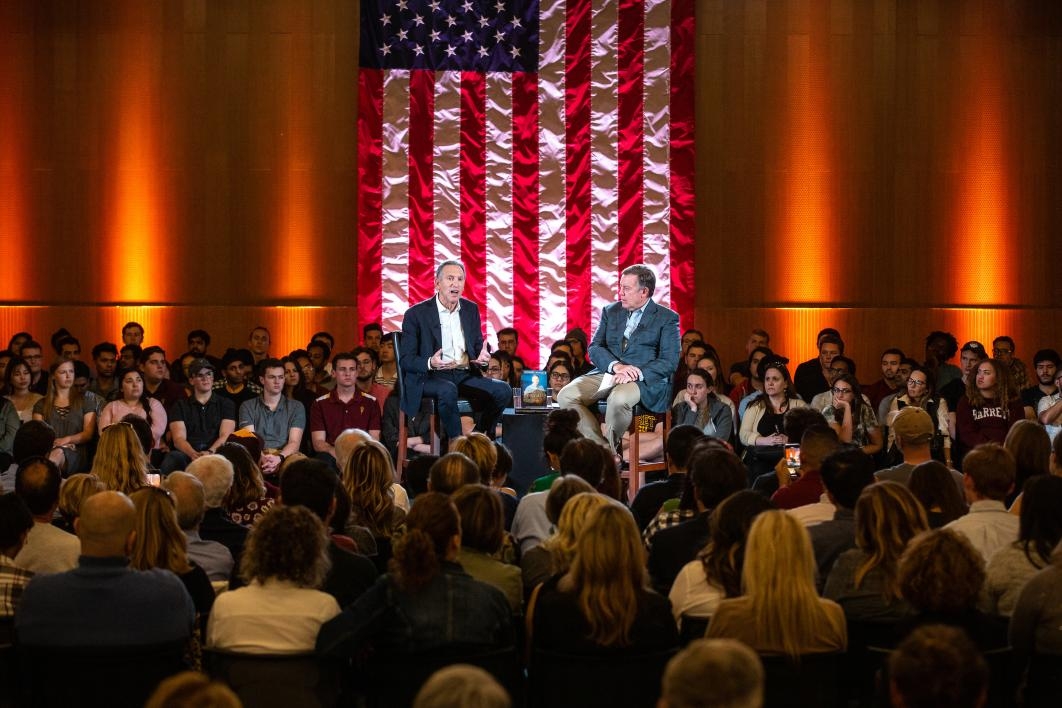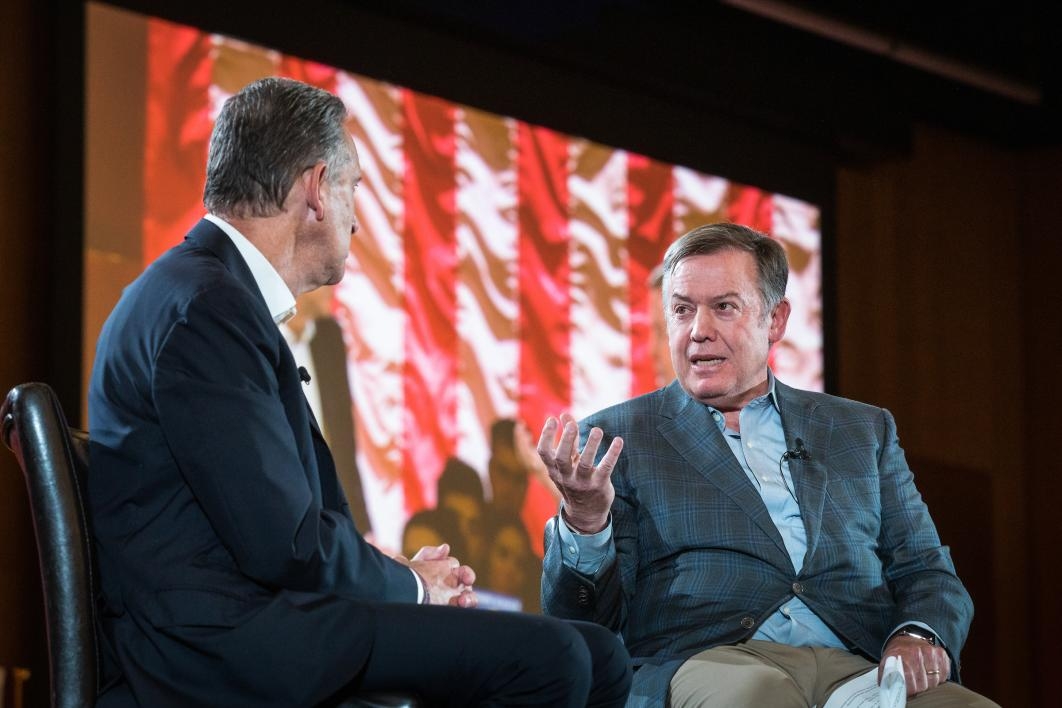Former Starbucks CEO Howard Schultz told a crowd at Arizona State University that although he is undecided on whether to run for president, he would do so as an independent because the two political parties are so ideological that they no longer represent the interests of the American people.
“Forty-two percent of the American people designate themselves as independent because they’ve lost so much trust and confidence in both parties,” he told the crowd at the Student Pavilion in Tempe on Wednesday. “But they have not had a legitimate choice.”
Schultz, who was at the Tempe campus to discuss his new book, “From the Ground Up: A Journey to Reimagine the Promise of America,” has raised the possibility of a presidential run in interviews in recent days, raising concerns among Democrats that a third-party candidacy would split opposition to President Donald Trump and lead to his re-election.
“I can promise you that I won’t do anything to be a so-called ‘spoiler’ in all this,” he said.
In his book, Schultz describes his poor upbringing in public housing and a chaotic, sometimes violent, home life.
ASU President Michael Crow, who introduced Schultz, said he was struck by how open Schultz was.
“You were unbelievably revealing of much of your inner self,” Crow said. “You talked about love openly, you talked about shame openly, and all these things you felt and experienced growing up.”
Schultz said he used to hide in the stairwell of his building to escape his apartment and wonder about his future. But that difficulty, along with his mother’s strong belief in the promise of the American dream, drove him to pursue success. He was the first in his family to graduate from college. After several years of working as a salesman and starting his own coffee company, he bought Starbucks.
He said that he wanted Starbucks to be about more than making profits.
“I wanted to create something. I wanted to uplift and bring people along with me on the journey,” he said, noting the company’s move to provide health insurance and stock ownership to all employees.
In 2014, Starbucks partnered with ASU on the Starbucks College Achievement Plan, the first-of-its-kind program to reimburse tuition for Starbucks employees, called “partners,” who take ASU Online classes. As of December 2018, more than 2,400 Starbucks partners graduated from ASU through the Starbucks College Achievement Plan.
In 2017, Starbucks discovered that about 20 percent of partners who applied were found to be academically ineligible for admission. So the company and ASU created another new initiative, Pathway to Admission. That program offers first-year college courses for free, with participants having the option to pay for credit after they pass the course, as well as help from support specialists.
More than 11,000 Starbucks partners participate in both the Starbucks College Achievement Plan and Pathway to Admission.
In talking about the possibilities of a presidential run, Schultz said that it would be disingenuous for him to run as a Democrat.
“I would have to say things that I don't believe are true to get the nomination because the Democratic Party today has moved so far to the left, and those things that are being talked about today as a Democratic platform basically tallies up to $40 trillion.”
His signature issue is the national debt, now pegged at about $22 trillion. He called it one of the greatest threats to national security.
“It’s been an issue that many people are afraid to talk about,” he said.
Schultz said that two issues have driven the increase in the national debt — slow revenue growth in the economy, between 2.5 percent and 4 percent annually, and the rising cost of entitlements, such as Social Security and Medicare.
“What I do not want to do is take away benefits from American people who have worked so hard to get them,” he said.
“Revenue growth is linked to innovation and education and immigration,” he said. “We have to do everything we can to try to raise the level of revenue growth in the country beyond 4 percent.”
Schultz lamented that much of the focus of the past few days has been on his wealth.
“I have this moniker, ‘He’s a billionaire, so don’t trust him,’ ” he said. “What’s the American dream? Isn’t it that wherever you come from, you can rise up and succeed? I always thought that was something to be celebrated, not something punitive.
“I’m living proof of the success of this country.”
ASU student Thomas Henning asked Schultz about racial inequality.
“Historically, the American dream has been for a very small subset of people,” he said, noting that African-Americans and other minorities are doing worse than their white counterparts.
“So other than to promise, as many politicians have done before to these minority groups, that the American dream is achievable to them, how will you actually go implement actual policies to make sure that’s the case?”
Schultz said that racism is one of the biggest challenges facing the country today.
“There seems to be a rise in discrimination and a license for hate not only for African-Americans but for people of any ethnic background that doesn’t seem to be consistent with what President Trump believes an American should look like,” Schultz said.
He said companies and other organizations should be encouraged, but not required, to have a representative workforce.
He described the resistance he faced when he encouraged a companywide discussion of race at Starbucks.
“Every one of us in this room has some degree of unconscious bias, and if we could be exposed to someone who is different from us, with different life experience or color of skin, we would learn something and be better for it.”
Top photo: Former Starbucks CEO Howard Schultz talks with ASU President Michael Crow before an audience of more than 700 at the Student Pavilion on the ASU Tempe campus on Wednesday. Photo by Charlie Leight/ASU Now
More Law, journalism and politics
Can elections results be counted quickly yet reliably?
Election results that are released as quickly as the public demands but are reliable enough to earn wide acceptance may not always be possible.At least that's what a bipartisan panel of elections…
Spring break trip to Hawaiʻi provides insight into Indigenous law
A group of Arizona State University law students spent a week in Hawaiʻi for spring break. And while they did take in some of the sites, sounds and tastes of the tropical destination, the trip…

LA journalists and officials gather to connect and salute fire coverage
Recognition of Los Angeles-area media coverage of the region’s January wildfires was the primary message as hundreds gathered at ASU California Center Broadway for an annual convening of journalists…


